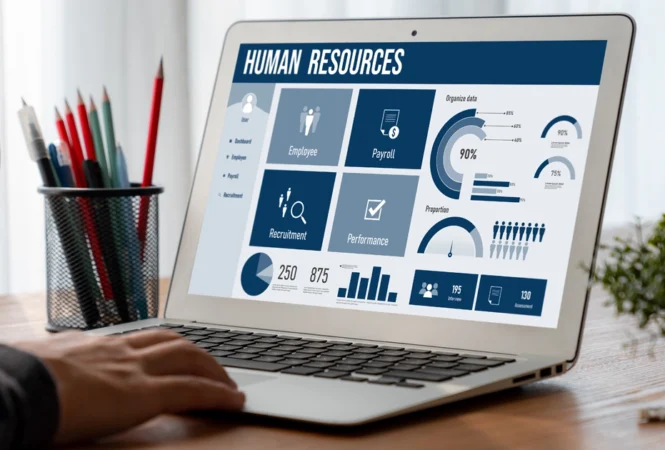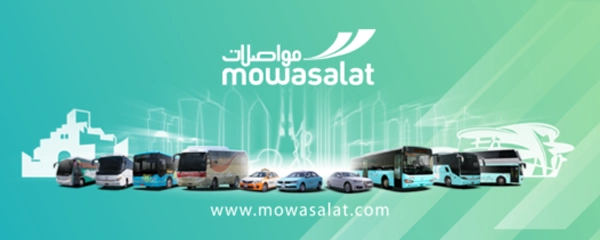KEY ADVANTAGES
Overseas Manpower Recrutiment Agencies
Time-Consuming Hiring Process
Scaling Workforce Quickly
Access to Passive Candidates


600
With 25+ years of expertise as an overseas manpower recruitment agency.
We’ve supported 600+ employers across MENA, connected with 500k+ candidates, and established a strong local presence in 10+ locations.
Our Services
Overseas Manpower
Recruitment Agency
We specialize in comprehensive overseas manpower recruitment services, offering end-to-end solutions for your manpower recruitment needs be it mass recruitment or hand picking we got it all covered.
OUR TESTIMONIAL
What our Client's says
Khatri Travels local presence and streamlined recruitment process have consistently helped us secure top talent for every project.
Khatri Travels surpassed our expectations by urgently recruiting 200 unskilled workers. Their dedication ensured we met deadlines without compromise.
Khatri’s customized recruitment solutions and strong local networks made our expansion into Saudi Arabia smooth and hassle-free.
Mowasalat
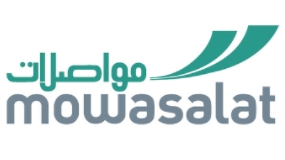
Qatar Energy
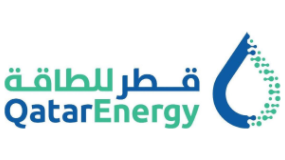
Supreme Committee for Delivery & Legacy
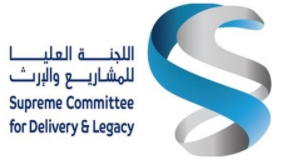
Accor Qatar
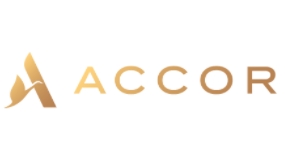
The Torch

Ezdan
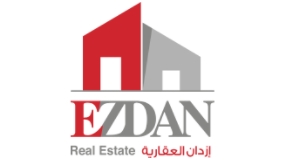
The Living Adventure
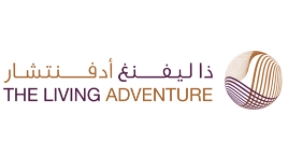
Amwaj Qatar
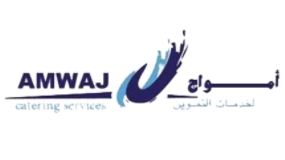
Teyseer Qatar
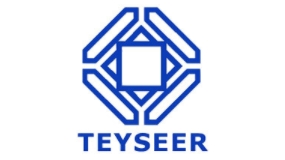
Latest News and Career Advice

The Best Free AI Resume Builder | Mahad Resume by Mahad Group
The Best Free AI Resume Builder: Transform Your Job Search with Mahad Resume. In today’s competitive job market, your resume is more than just a document; it’s your first impression, your career story, and often the deciding factor between landing an interview and getting overlooked. Research shows that candidates who use AI assistance in resume writing are eight per cent more likely to be hired, making intelligent resume creation tools essential for modern job seekers. Enter Mahad Resume by Mahad Group, a revolutionary platform that combines artificial intelligence with professional design to help you create compelling, interview-winning resumes in minutes.
What Makes Mahad Resume the Ultimate Free AI Resume Builder?
Free AI Resume Builder stands out in the crowded landscape of resume creation tools by offering a completely free, comprehensive solution that doesn’t compromise on quality. Unlike other platforms that hide essential features behind paywalls, Mahad Resume provides full access to AI-powered content generation, professional templates, and advanced customisation options at no cost. This commitment to accessibility reflects Mahad Group’s mission to democratize career success tools for everyone, regardless of their budget.
The platform leverages cutting-edge artificial intelligence to analyse your work experience, skills, and career objectives, then generates tailored content that speaks directly to hiring managers. Whether you’re a recent graduate crafting your first professional resume or an experienced executive seeking to update your application materials, Mahad Resume tailors to your unique needs. Frequently asked questions
How AI Technology Revolutionises Resume Writing
Traditional resume creation can be overwhelming. You stare at a blank page, wondering how to describe your accomplishments, which skills to highlight, and how to format everything professionally. Mahad’s Resume eliminates this stress through intelligent automation. The AI analyses job descriptions, identifies critical keywords, and suggests compelling bullet points that showcase your achievements effectively.
Free AI Resume Builder: According to the U.S. Bureau of Labour Statistics, the employment landscape continues to evolve, with professionals across all industries needing strong application materials. The platform’s smart algorithms ensure your resume includes industry-specific terminology and quantifiable achievements that capture recruiters’ attention. Research indicates that hiring managers spend an average of just six seconds reviewing each resume, making professional formatting and strategic keyword placement crucial for success.
Key Features That Set Mahad’s Resume Apart
Intelligent Content Generation: The free AI resume builder analyses your career history and automatically generates professional descriptions for each role. Simply input your job title and basic responsibilities, and watch as the AI transforms them into compelling bullet points that highlight your impact and achievements. Free online resume builder
ATS-Friendly Templates: With 98 per cent of Fortune 500 companies using Applicant Tracking Systems to screen applications, having an ATS-compatible resume isn’t optional—it’s essential. Mahad Resume offers a curated collection of professionally designed templates that pass automated screenings while maintaining visual appeal for human reviewers.
Real-Time Optimisation: As you build your resume, the platform provides instant feedback on keyword density, formatting consistency, and content quality. This real-time guidance helps you create stronger applications without needing professional resume writing experience.
Multi-Format Downloads: Export your completed resume in PDF, Word, or plain text formats, ensuring compatibility with any application system or employer requirement. The platform maintains perfect formatting across all export options.
Customisation Flexibility: While the AI provides excellent starting points, you maintain complete control over every element. Adjust fonts, colours, spacing, and layout to reflect your personal brand while staying within professional standards. Resume in minutes
The Mahad Group Advantage: More Than Just Resume Building
Mahad’s Resume represents just one component of Mahad Group’s comprehensive career development ecosystem. As part of a larger network of professional tools and resources, users benefit from integrated solutions that support every stage of their career journey. The platform seamlessly connects with other Mahad Group services, providing a holistic approach to professional advancement.
Free AI Resume Builder: This interconnected ecosystem means your resume data can inform other career tools, streamlining your entire job search process. From application tracking to interview preparation, Mahad Group’s suite of products works together to maximise your employment success.

Why Choose a Free AI Resume Builder Over Premium Alternatives?
Many job seekers hesitate to invest in resume services, especially when between positions. Mahad Resume eliminates this barrier by offering premium features without subscription fees. This approach reflects a fundamental belief that financial constraints shouldn’t limit access to essential career tools.
Research suggests that 41 per cent of recruiters prioritise skills when reviewing applications, and 36 per cent of them use AI for resume matching. Mahad Resume ensures your application highlights the right competencies in formats that both automated systems and human reviewers appreciate, all without requiring payment.
Getting Started: Your Resume in Three Simple Steps
Using Free AI Resume Builder couldn’t be easier. First, select from professionally designed templates that match your industry and career level. Next, input your information using intuitive prompts, allowing the AI to generate polished content suggestions. Finally, customise colours, fonts, and layouts to reflect your personal brand, then download your interview-ready resume.
The entire process typically takes less than fifteen minutes, though you can spend additional time refining details to perfection. The platform saves your progress automatically, letting you return and make updates whenever needed.
The Future of Job Applications
As artificial intelligence continues transforming recruitment processes, staying ahead requires tools that understand both technology and human psychology. Mahad’s Resume bridges this gap, creating applications that satisfy algorithmic requirements while resonating with hiring managers on a personal level.
Free AI Resume Builder: The platform evolves continuously, incorporating the latest research on hiring trends, ATS algorithms, and recruiter preferences. This commitment to innovation ensures users always have access to cutting-edge resume strategies without constantly switching tools or paying for updates.
Building Success Through Better Resumes
Free AI Resume Builder: Your career deserves more than a generic template and crossed fingers. Mahad Resume by Mahad Group provides the intelligent assistance, professional design, and strategic guidance needed to create applications that open doors. Whether you’re making your first career move or your fifteenth, this free AI resume builder delivers the quality and functionality typically reserved for expensive professional services.
Visit MahadGroup.com today to experience how Mahad Resume transforms the traditionally stressful process of resume creation into a straightforward, even enjoyable task. Your next great opportunity is waiting make sure your resume is ready to seize it. This post by Mahad Resume

13 High-Demand Skills Boosting Overseas Salaries by $1000s
The global job market has created unprecedented opportunities for skilled professionals to multiply their earning potential by working overseas. Certain high-demand skills can dramatically increase salary packages, with some professionals earning $10,000 to $50,000 more annually than their domestic counterparts. At KhatriToursandTravels.com, we’ve witnessed countless professionals transform their careers by leveraging these high-demand skills in international markets, combining strategic career moves with seamless travel planning for optimal overseas employment experiences.
The Economics of High-Demand Skills in Global Markets
High-demand skills create significant salary premiums in international markets due to talent scarcity, economic development priorities, and competitive business environments. Countries like the UAE, Singapore, Australia, Canada, and Germany actively recruit professionals with specific high-demand skills, offering attractive compensation packages, visa sponsorships, and comprehensive relocation support. Understanding which high-demand skills command the highest premiums enables strategic career planning and international mobility decisions.
The globalization of business operations has created uniform demand for certain high-demand skills across multiple countries, allowing professionals to choose destinations based on lifestyle preferences, cultural affinity, and long-term career objectives rather than limiting themselves to specific geographic markets.
1. Artificial Intelligence and Machine Learning
AI and machine learning represent the most lucrative high-demand skills in today’s global economy, with overseas salaries ranging from $80,000 to $200,000 annually. Countries investing heavily in digital transformation, including the UAE, Singapore, and Germany, offer premium compensation for professionals skilled in neural networks, deep learning, and AI system architecture. These high-demand skills can increase overseas earnings by $20,000 to $60,000 compared to domestic markets.
Professionals with AI expertise find exceptional opportunities in autonomous vehicle development, healthcare innovation, and financial technology sectors across international markets that prioritize technological advancement and digital economy growth.
2. Cybersecurity Architecture and Threat Management
Cybersecurity specialists with advanced high-demand skills in threat detection, incident response, and security architecture command overseas salaries exceeding $90,000 to $180,000 annually. Countries with significant financial sectors and government digitization initiatives, including Australia, Canada, and the UAE, offer substantial premiums for cybersecurity expertise. These high-demand skills can boost international earnings by $15,000 to $40,000 above domestic salary levels.
The increasing frequency of cyber attacks and regulatory compliance requirements create sustained demand for cybersecurity professionals across all international markets, ensuring long-term career stability and growth opportunities.
3. Data Science and Advanced Analytics
Data scientists possessing high-demand skills in predictive modeling, statistical analysis, and business intelligence earn overseas salaries ranging from $75,000 to $160,000 annually. Technology hubs in Singapore, Ireland, and the Netherlands actively recruit data science professionals, offering compensation packages that exceed domestic markets by $18,000 to $45,000. These high-demand skills are particularly valued in e-commerce, healthcare, and financial services sectors.
The exponential growth of data generation across industries ensures continued demand for professionals who can translate complex datasets into actionable business insights and strategic recommendations.
4. Cloud Computing and DevOps Engineering
Cloud architects and DevOps engineers with high-demand skills in AWS, Azure, and Google Cloud platforms earn overseas salaries from $85,000 to $170,000 annually. Countries modernizing their IT infrastructure, including New Zealand, Denmark, and the UAE, offer significant premiums for cloud expertise. These high-demand skills can increase international earnings by $20,000 to $50,000 compared to domestic opportunities.
The global migration to cloud-based systems creates sustained demand for professionals who can design, implement, and manage scalable cloud architectures across diverse international markets.
5. Digital Marketing and Growth Hacking
Digital marketing specialists with high-demand skills in performance marketing, conversion optimization, and growth hacking strategies earn overseas salaries ranging from $60,000 to $120,000 annually. E-commerce focused economies like the UK, Australia, and Singapore offer substantial compensation for digital marketing expertise. These high-demand skills can boost international earnings by $12,000 to $35,000 above domestic salary levels.
The digitization of business operations worldwide creates continuous demand for marketing professionals who can drive online growth and customer acquisition across international markets.
6. Renewable Energy Engineering
Renewable energy engineers possessing high-demand skills in solar, wind, and battery technology earn overseas salaries from $70,000 to $140,000 annually. Countries committed to sustainable development, including Germany, Denmark, and Australia, offer premium compensation for renewable energy expertise. These skills can increase international earnings by $15,000 to $40,000 compared to domestic opportunities.
Global climate commitments and energy transition policies ensure long-term demand for renewable energy professionals across diverse international markets focused on environmental sustainability.
7. Blockchain Development and Cryptocurrency
Blockchain developers with high-demand skills in smart contracts, cryptocurrency systems, and decentralized applications earn overseas salaries ranging from $90,000 to $180,000 annually. Technology-forward countries like Switzerland, Estonia, and Singapore actively recruit blockchain professionals, offering compensation that exceeds domestic markets by $25,000 to $60,000. These high-demand skills are particularly valuable in fintech, supply chain, and digital identity sectors.
The growing adoption of blockchain technology across industries creates sustained demand for developers who can build secure, scalable decentralized systems.
8. Healthcare Technology and Telemedicine
Healthcare technology specialists with high-demand skills in telemedicine platforms, medical device integration, and health informatics earn overseas salaries from $75,000 to $150,000 annually. Countries modernizing healthcare systems, including Canada, Australia, and the Netherlands, offer substantial premiums for healthcare technology expertise. These high-demand skills can boost international earnings by $18,000 to $45,000 above domestic salary levels.
The global healthcare digitization trend ensures continuous demand for professionals who can bridge medical expertise with technology innovation across international markets.
9. Project Management and Agile Leadership
Certified project managers with high-demand skills in agile methodologies, digital transformation, and international project coordination earn overseas salaries ranging from $65,000 to $130,000 annually. Multinational corporations in the UAE, UK, and Germany offer premium compensation for experienced project management professionals. These skills can increase international earnings by $12,000 to $30,000 compared to domestic opportunities.
The complexity of global business operations creates sustained demand for project managers who can coordinate cross-cultural teams and deliver results across international markets.
10. UX/UI Design and Product Strategy
UX/UI designers with high-demand skills in user research, design thinking, and product strategy earn overseas salaries from $60,000 to $125,000 annually. Technology companies in Ireland, the Netherlands, and Australia actively recruit design professionals, offering compensation that exceeds domestic markets by $15,000 to $35,000. These skills are particularly valued in software development, e-commerce, and mobile application sectors.
The focus on user experience across digital products ensures continued demand for design professionals who can create intuitive, engaging user interfaces.
11. Financial Technology and Quantitative Analysis
FinTech specialists with high-demand skills in algorithmic trading, risk modeling, and payment systems earn overseas salaries ranging from $85,000 to $170,000 annually. Financial centers like London, Singapore, and Dubai offer substantial premiums for FinTech expertise. These high-demand skills can boost international earnings by $20,000 to $50,000 above domestic salary levels.
The digitization of financial services creates sustained demand for professionals who can develop innovative financial products and automated trading systems.
12. Supply Chain Optimization and Logistics
Supply chain experts with high-demand skills in logistics optimization, inventory management, and global trade coordination earn overseas salaries from $70,000 to $135,000 annually. Trade-focused economies including the UAE, Singapore, and Germany offer premium compensation for supply chain expertise. These skills can increase international earnings by $15,000 to $40,000 compared to domestic opportunities.
Global trade complexities and e-commerce growth ensure continuous demand for supply chain professionals who can optimize international logistics operations.
13. Multilingual Communication and Cultural Intelligence
Professionals with high-demand skills in multiple languages, cultural adaptation, and international business communication earn overseas salaries from $55,000 to $110,000 annually. Multinational organizations across the UAE, Switzerland, and Canada value linguistic diversity and cultural competence. These skills can boost international earnings by $10,000 to $25,000 above monolingual counterparts.
The globalization of business operations creates sustained demand for professionals who can facilitate cross-cultural communication and international collaboration.
Maximizing Overseas Career Opportunities
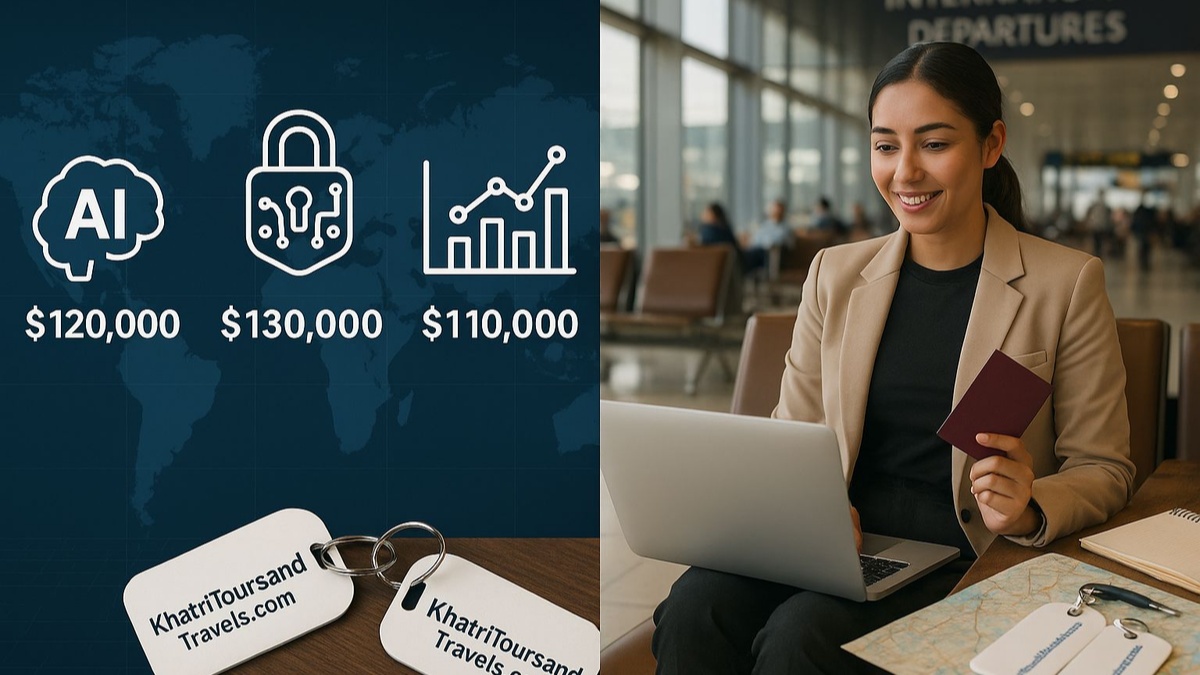
Successfully leveraging high-demand skills for international career advancement requires strategic planning, proper documentation, and seamless travel coordination. KhatriToursandTravels.com specializes in supporting professionals throughout their overseas career journeys, from initial travel arrangements to relocation logistics and ongoing international mobility support.
Contact KhatriToursandTravels.com today to discover how we can help you leverage your skills for international career success while ensuring smooth, stress-free travel experiences that support your global ambitions.

UAE Work Visa Updates 2025: New Regulations Explained
The comprehensive UAE work visa updates for 2025 introduce transformative changes that create unprecedented opportunities for international professionals seeking career advancement in the Emirates. These significant UAE work visa updates reflect the country’s strategic commitment to attracting global talent while streamlining processes for seamless integration into Dubai, Abu Dhabi, and the broader UAE business ecosystem.
Understanding these UAE work visa updates becomes essential for professionals planning international relocations, career transitions, and long-term residency in one of the world’s most dynamic business environments. The new regulations demonstrate the UAE’s vision of becoming a global hub for innovation, entrepreneurship, and cultural exchange that welcomes skilled professionals from around the world.
For individuals and families considering Emirates relocation, these UAE work visa updates provide clearer pathways, reduced bureaucracy, and enhanced flexibility that make the transition process more accessible and predictable for international career advancement.
UAE Work Visa Updates: Streamlined Digital Processing Revolution
The most significant aspect of the UAE work visa updates involves the implementation of advanced digital processing systems that reduce approval times from weeks to days through artificial intelligence and blockchain technology integration. These technological improvements represent a major leap forward in the UAE’s digital transformation initiatives.
The UAE work visa updates establish comprehensive online platforms where applicants can submit documents, track progress, and receive approvals through integrated government systems that eliminate traditional bureaucratic delays. Real-time status updates and automated notifications keep applicants informed throughout the entire process.
These digital enhancements within the UAE work visa updates include biometric integration, automated document verification, and predictive processing that identifies potential issues before they cause delays, ensuring smoother transitions for international professionals and their families.
Enhanced Salary Thresholds and Professional Categories
The UAE work visa updates introduce revised minimum salary requirements that vary by emirate and professional specialization, reflecting current market conditions while maintaining the UAE’s position as a premium destination for skilled professionals. These adjustments ensure competitive compensation packages that attract top international talent.
Specialized professional categories within the UAE work visa updates receive expedited processing and additional benefits for technology experts, healthcare professionals, educators, renewable energy specialists, and other strategic sectors supporting the UAE’s economic diversification goals.
The UAE work visa updates also establish clear pathways for salary progression and visa category upgrades based on performance, additional qualifications, and market contribution, encouraging continuous professional development and long-term commitment to UAE career advancement.
Family Integration and Dependent Benefits
Significant improvements in the UAE work visa updates address family sponsorship requirements, making it easier for skilled professionals to relocate with spouses and children while maintaining quality of life standards that support long-term family settlement in the Emirates.
The UAE work visa updates extend sponsorship eligibility to include parents and unmarried daughters in certain circumstances, recognizing the importance of family unity in attracting and retaining global talent who contribute to the UAE’s multicultural business environment.
Educational benefits within the UAE work visa updates include enhanced access to international schools and university programs for dependents, creating long-term value for families choosing to build their lives and careers in the UAE’s world-class educational ecosystem.
Travel and Relocation Support Services
The UAE work visa updates create opportunities for comprehensive relocation support that combines visa processing with travel planning, accommodation assistance, and cultural orientation services that ensure smooth transitions for international professionals and their families.
Professional travel and relocation services aligned with the UAE work visa updates include destination scouting visits, temporary accommodation arrangements, school enrollment support, and practical orientation programs that help newcomers integrate successfully into UAE business and social environments.
The UAE work visa updates also facilitate pre-arrival planning through virtual consultations, digital document preparation, and strategic timing advice that optimizes the relocation process while minimizing disruption to current employment and family commitments.
Employment Flexibility and Career Mobility

Revolutionary changes in the UAE work visa updates introduce greater flexibility for job transitions and career advancement without complex visa transfer procedures, making the UAE more attractive to ambitious professionals seeking dynamic career development opportunities.
New provisions within the UAE work visa allow for multiple employer relationships in certain professional categories, supporting the growing freelance economy and consulting sectors that drive innovation and entrepreneurship throughout the Emirates.
The UAE work visa updates establish clearer guidelines for transitioning between employment categories, enabling professionals to evolve their careers in response to market opportunities while maintaining legal status and building long-term UAE residence eligibility.
Strategic Destination Planning and Cultural Preparation
The UAE work visa updates emphasize the importance of cultural preparation and destination planning that helps international professionals understand business customs, social norms, and professional expectations that contribute to career success in the Emirates.
Comprehensive destination services aligned with the UAE work visa include cultural orientation programs, business etiquette training, networking facilitation, and practical guidance for integrating into the UAE’s multicultural professional environment.
The UAE work visa updates also support exploratory visits and destination scouting trips that allow professionals and families to experience UAE lifestyle, evaluate career opportunities, and make informed decisions about long-term relocation and career development.
Industry-Specific Opportunities and Sector Advantages
The UAE work visa updates include tailored provisions for key industries including technology, healthcare, finance, renewable energy, and tourism, addressing unique workforce needs while supporting the UAE’s economic diversification and Vision 2071 objectives.
Special consideration within the UAE work visa updates applies to startups, innovation-focused companies, and entrepreneurial ventures, with expedited processing and reduced requirements for businesses contributing to the UAE’s technology ecosystem and economic development.
Comprehensive Relocation and Career Support
Understanding and leveraging the UAE work visa updates requires strategic planning that combines visa expertise with travel services, cultural preparation, and ongoing support that ensures successful career transitions and family integration in the Emirates.
The UAE work visa create opportunities for service providers who understand both regulatory requirements and practical relocation needs, offering comprehensive support that addresses every aspect of international career transitions and family relocations.
Future Opportunities and Strategic Advantages
The UAE work visa updates position the Emirates as an increasingly attractive destination for global talent while maintaining selective standards that ensure quality contribution to national development and economic growth objectives.
Successful navigation of the UAE work visa enables professionals to access one of the world’s most dynamic economies while building international careers that leverage the UAE’s strategic position as a global business hub connecting East and West through innovation, trade, and cultural exchange.





